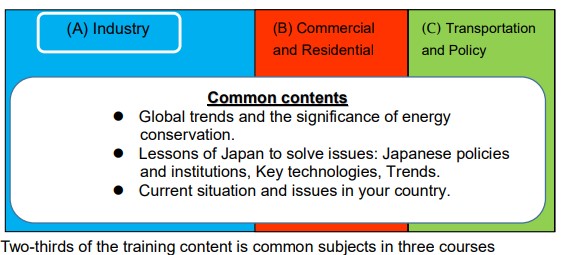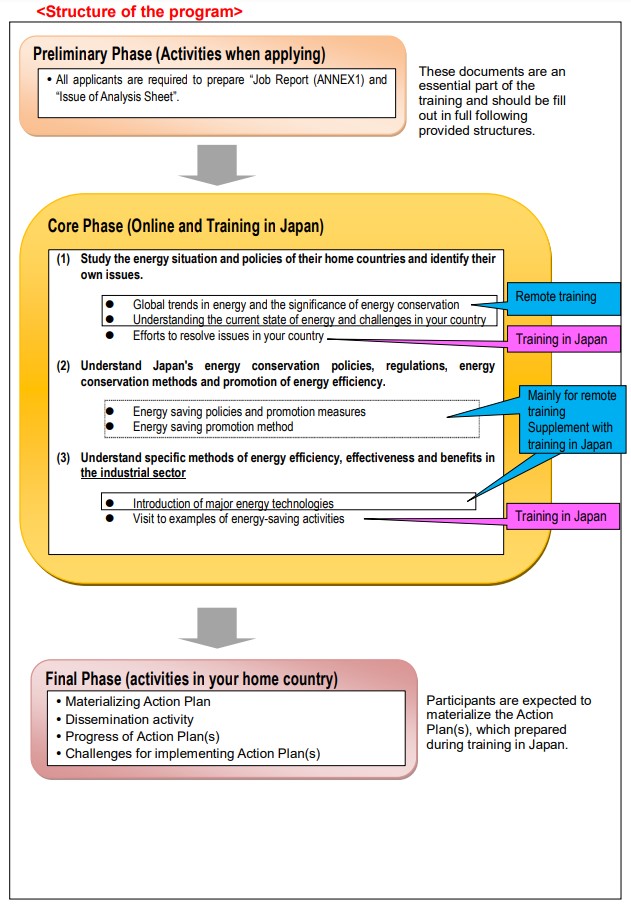
In the wake of two oil crises in the 1970s, the society came together to improve energy efficiency which led Japan’s energy conservation to the highest level amongst the world. Through the experience, Japan holds a great comparative advantage in the field of energy efficiency and conservation in terms of policy, institution and technology. The Knowledge Co-Creation Program has three courses: (A) Industry, (B) Commercial and Residential, and (C) Transportation and Policy development.
Participants formulate action plans to be implemented by their own organizations to improve energy efficiency in industrial sector.
Whole Course Outputs:
(1) Study the energy situation and policies of their home countries and identify their own issues.
(2) Understand Japan’s energy conservation policies, regulations, energy conservation methods and promotion of energy efficiency.
(3) Understand specific methods of energy efficiency, effectiveness and benefits through good practices for energy conservation in industrial sector and then understand differences and applicability of measures by comparing them with current situation of home country.
Training period:
(1) Remote Training (A group: From January 26th, 2021 to February 10th ,2021 / B group: From February 15th, 2021 to March 15th 2021)
(2) Training in Japan (From January 15th, 2022 to February 19th 2022
Expected Module:
(1) Learning the world trends and significance of energy conservation (online)
(2) Learning the current situation and issues in participants’ countries (online)
(3) Learning from Japan to solve issues in Tokyo (in Japan)
(4) Learning from Japan to solve issues in Kitakyushu city (in Japan)
(5) Energy efficiency technology in the industrial sector (online)
(6) Formulation of action plan (online)

